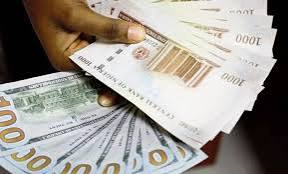The manufacturing sector suffered a 400 percent increase in net foreign exchange loss to N466 billion in nine months ending September, reflecting the severe impact of the foreign exchange (Forex) market regime.
Sector operators said the current forex situation has compounded the pressures emanating from the removal of oil subsidy, Russia/ Ukraine war among other adverse developments.
The operators said the sector now bleeds from multiple points as a result of exchange rate revaluation losses.
Consequently, information contained in the financial reports of the top 17 manufacturing companies listed on the Nigerian Exchange Limited, NGX , indicated that while their gross earnings rose as they increase the prices of their products, their profits crashed as a result of the multiple pressure points eroding their financial stability.
Data sourced by Financial reporters from the financials of the big manufacturing firms on the Exchange showed a net foreign exchange loss of N466.02 billion in the nine months ended September 2023 (9M’23) representing an overwhelming increase of almost 400% from N93.219 billion loss recorded in 9M’22.
The data showed that while the combined gross earnings of the firms grew by 23.4% to N4.4 trillion in 9M’23 as against N3.6 trillion in 9M’22, the companies recorded a 24.6 percent decline in combined Profit Before Tax, PBT, to N505.148 billion in 9M’23 as against N670.089 billion in 9M’22.
Cost of consumer goods
The trend is reflected in the increased cost of producing consumer goods, which are mostly essential commodities used regularly by households.
These include foods and beverages, toiletries, over-the-counter medicines, cleaning and laundry products, plastic goods, and personal care products, among others.
findings reveal that while the companies increased the prices of their products in response to the inflationary pressures on their operating cost, this has resulted in low volume of patronage from the consumers whose income has equally been eroded by inflation.
The situation has now combined with losses they recorded in foreign exchange revaluation just as the higher exchange rate also increased the cost of foreign input forcing them to either close some production lines or scale down output below break-even points.
Read Also: Foreign investors pull out N310bn assets, as P&G, Equinor exit Nigeria
Data from the National Bureau of Statistics (NBS) showed that the inflation rate in Nigeria closed 9M’23 at 26.72%. The figure has since risen to 27.3 %percent as at the month of October 2023 and is projected to rise further this month, possibly sustained to year end.
Also, the Naira value against the US Dollar which stood at N448.04/US$ at the beginning of the year (2023) crashed to N832.32/US$ as at end 9M’23 following the Central Bank of Nigeria (CBN) foreign exchange reforms in mid-June.










